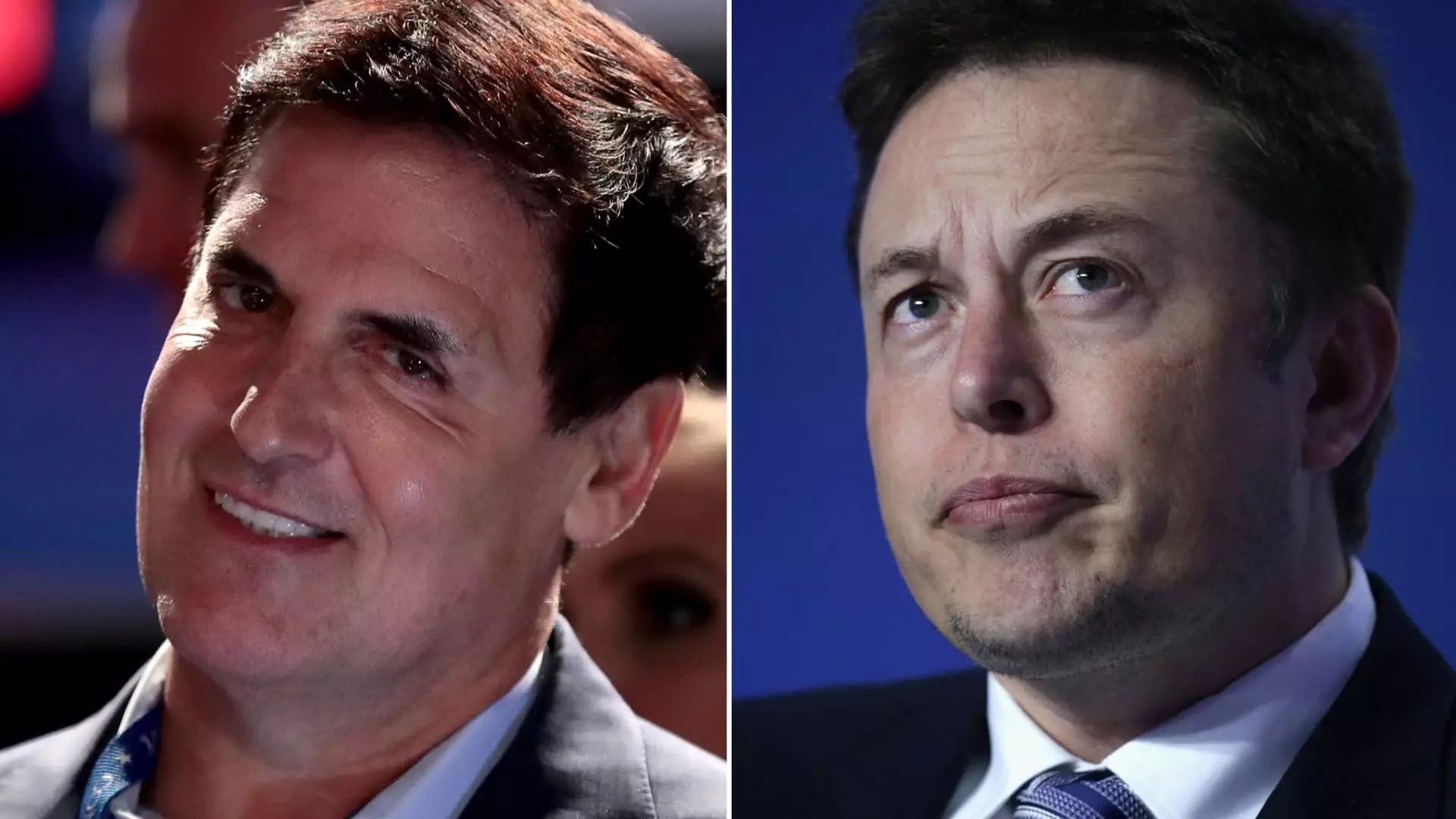In a landscape where personal ambition and business interests intertwine with political affiliations, the relationship dynamics between influential figures can significantly impact not only their enterprises but also public perception. Recent interactions between billionaire investor Mark Cuban and Tesla CEO Elon Musk have brought this theme to the forefront. Cuban’s public caution directed towards Musk regarding his apparent alignment with Donald Trump manifests a deeper concern about loyalty and reciprocity in the realm of political alliances.
Cuban’s message, articulated via a post on X, resonates with both simplicity and profoundness: the nuances of loyalty in politics can often lead to unexpected disappointments. He pointed out that although Musk may perceive his contributions and loyalty to Trump as a form of political capital, history has shown that such expectations can be misleading. Cuban’s warning underscores a recurring theme in political relationships—those in power may not reciprocate loyalty in the way one anticipates, particularly when it comes to transactional politics.
Elon Musk’s recent endorsement of Trump is a marked shift from his previous rhetoric. Not long ago, Musk positioned himself in opposition to Trump, amplifying sentiments that reflected ambivalence, if not outright disdain. This pivot raised eyebrows, as it highlighted a potential opportunistic approach—ideal for someone with his ambitions. However, Cuban’s cautionary stance encapsulates the risk inherent in such alliances, urging Musk to consider the ramifications of what aligning with Trump could mean in terms of political capital and future needs.
Cuban’s commentary sheds light on the intricate dance of political transactions that often defines the behavior of wealthy supporters who align their fortunes with political candidates. His experience indicates that the perceived bartering of loyalty, especially in turbulent political climates, can lead to disillusionment. Cuban’s own political trajectory has shifted; he has emerged as a vocal advocate for Vice President Kamala Harris, asserting that her economic policies are more conducive to business growth compared to those endorsed by Trump.
Intriguingly, this turn in Cuban’s political involvement may also signal his personal ambitions. With speculation surrounding potential roles at regulatory bodies like the Securities and Exchange Commission (SEC), Cuban’s political alignment appears strategic rather than merely altruistic. He has positioned himself as an active player in political discourse, thereby increasing his visibility and perhaps enhancing his chances of entering the political fray if the opportunity arises.
For Musk, the stakes are high as he navigates this political landscape. His desire to lead a proposed government efficiency commission should Trump regain the presidency symbolizes a willingness to play an influential role in shaping policy. This ambition is not just about personal aspiration; it highlights the effect of government policies on business operations. Musk’s connection with Trump may open doors, but it could also expose him to the vulnerabilities that Cuban warns about.
However, Musk’s commentary on immigration and election integrity also suggests a strategic use of rhetoric aimed at aligning himself with specific voter bases. The implications of this strategy are profound; it raises questions about how business moguls influence electoral outcomes and what their responsibilities are in doing so. Musk must recognize that while such alliances may yield short-term benefits, they could also alienate sections of the populace or lead to backlash that could jeopardize his extensive business interests.
Ultimately, the interplay between Cuban and Musk serves as a powerful illustration of the broader implications of aligning business interests with political figures. Loyalty in politics may often be transactional, and the expectations that accompany it could lead to significant miscalculations. As both billionaires forge their paths in the politically charged atmosphere of 2024 and beyond, their decisions will likely reverberate far beyond their individual ambitions, influencing public policy, economic conditions, and the political landscape as a whole.
In navigating these treacherous waters, both men may be wise to heed the lessons of history: even the most fortified alliances can be frail, and the political currents can turn in an instant. Ultimately, maintaining genuine relationships grounded in mutual respect and responsibility may prove more beneficial than any fleeting political alliance.

Leave a Reply